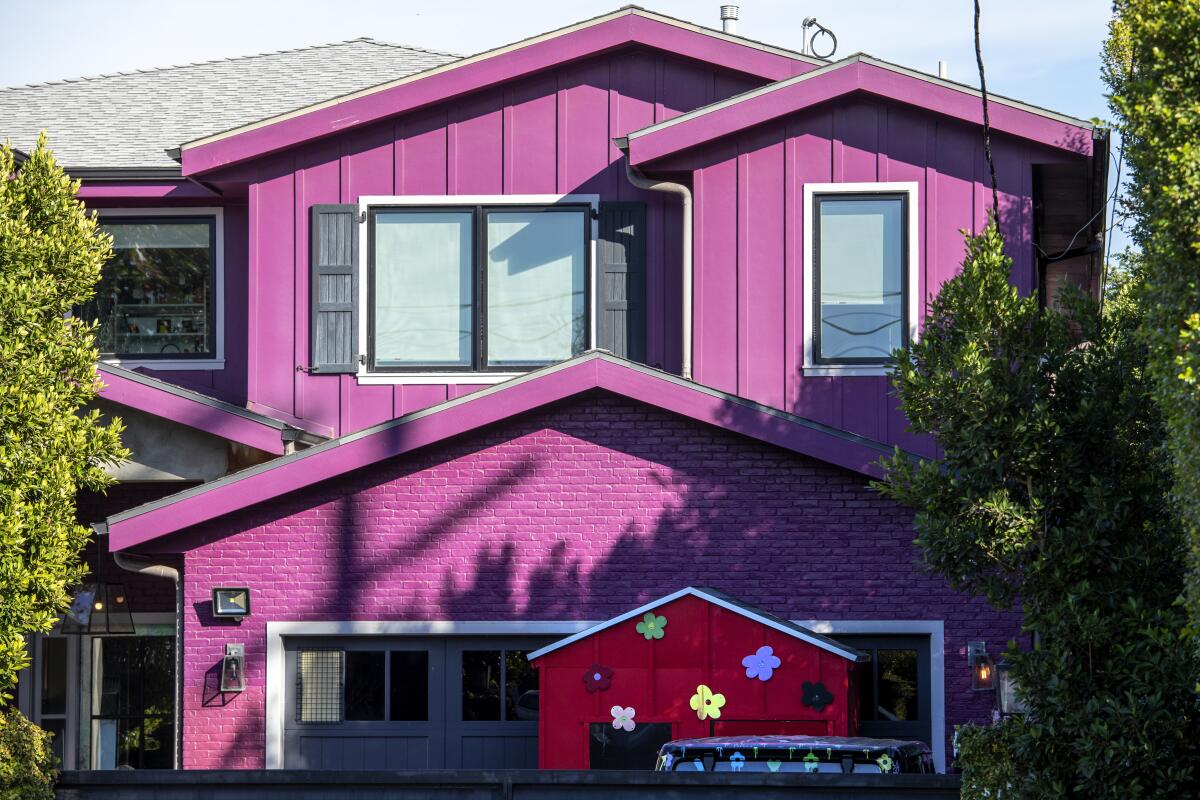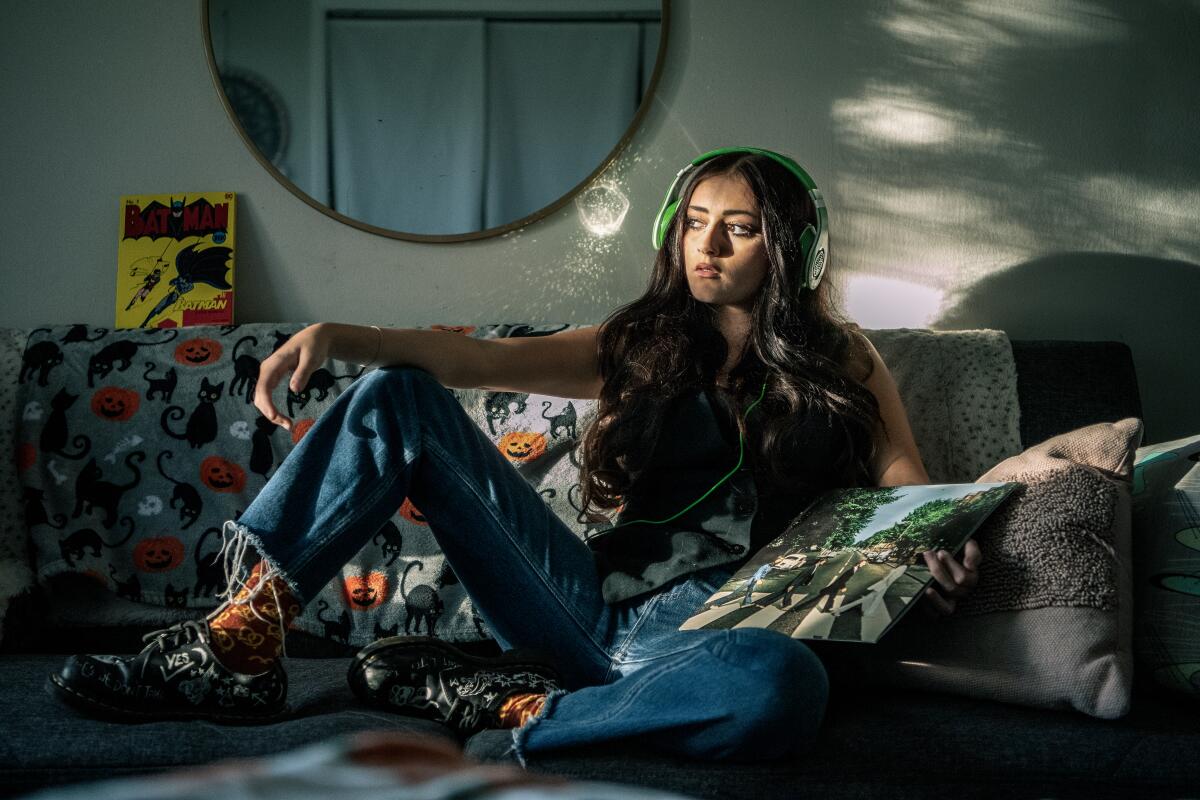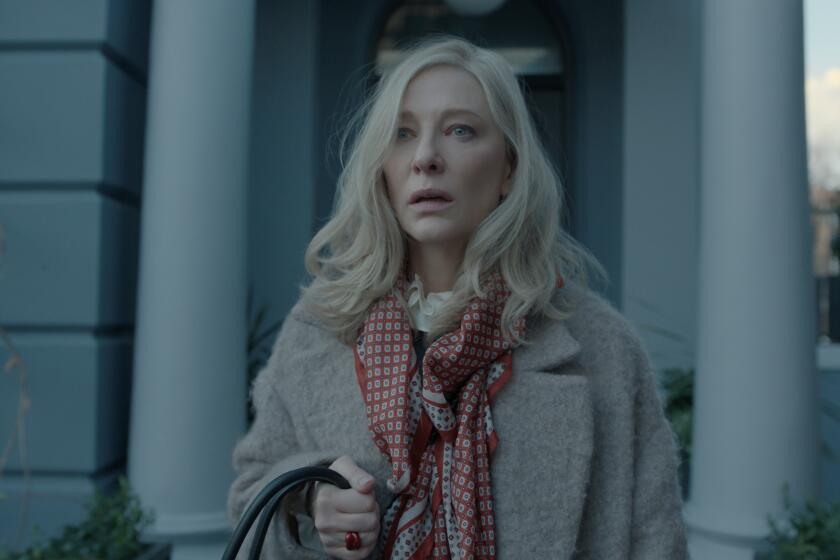YouTube star Piper Rockelle’s mom reaches $1.85-million settlement with young influencers

- In the 2021 lawsuit, child actors alleged they were “frequently subjected to an emotionally, physically and sometimes sexually abusive environment.”
- Rockelle’s mom, Tiffany Smith, denied the allegations.
- A subsequent Times investigation revealed further allegations against Smith.
Teenage content creators who claimed in a lawsuit that they were “emotionally, physically and sometimes sexually” abused by the mother of popular YouTube influencer Piper Rockelle have settled the case for $1.85 million.
The settlement, announced Tuesday, marked the end of an explosive saga that shed light on the murky, often unregulated world of child social media stars making large sums of money online.
In January 2022, 11 young actors known as “the Squad” and their guardians filed a complaint in Los Angeles County Superior Court alleging that Rockelle’s mother, Tiffany Smith, did not properly compensate them for their work. Rockelle, who has 12 million subscribers on YouTube, generated much of her fan base through skits filmed with her friends in which they performed pranks, dances and challenges.
A lawsuit against “kidfluencer” Piper Rockelle offers an unsettling glimpse into a largely unregulated world of social media content creation, a Times investigation found.
Although Rockelle made as much as $625,000 a month, former Squad members claimed in their lawsuit that they often worked without meal or rest breaks and were not given on-set schooling. A 2022 Times investigation into Rockelle’s business also reported more serious allegations: Some children said Smith offered to show an 11-year-old girl how to perform oral sex, mailed her daughter’s underwear to men and touched some Squad members inappropriately — sometimes impersonating the voice of a dead cat while doing so.
Smith and Hunter Hill, her then-boyfriend and colleague, denied the allegations in the lawsuit. They did not respond to a request for comment sent to their lawyer, Kenneth Ingber, this week.
Matthew Sarelson, who represented the Squad, said the settlement allowed the group to avoid a trial that he said would have taken months and “required the kids and their parents and their friends and their doctors to testify about things that the kids have put behind them.”
The plaintiffs originally were seeking at least $22 million in damages.
“I’m happy and relieved for my clients,” Sarelson wrote in an email, “11 kids who endured an abusive environment and had the courage to speak out publicly.”

At the heart of the lawsuit was what critics called the Wild West atmosphere of content creation, particularly when the creators are kids and teenagers working in private homes with the help of adults and other guardians. Child labor laws — which do apply to social media creators — are not often enforced. Child performer advocacy groups, including an L.A.-based group called BizParentz, have lobbied for regulatory reform but have had difficulty overhauling protections for kids working online.
Because Smith was essentially acting as the Squad’s employer, many of the children’s parents said, they trusted that she was following guidelines. California has some of the strictest child performer protections in the country, mandating a maximum eight-hour workday, three hours per weekday of on-set school instruction and a state-licensed studio teacher/welfare worker present at all times. In addition, child performers are supposed to keep 100% of their earnings. Many child content creators, however, occupy a legal gray zone.
“There is tremendous uncertainty about what labor laws apply in the context of filming a YouTube video at home, with an iPhone,” Smith’s lawyer, Ingber, told The Times during its investigation. “At what point is that a professional production?”
Before the Squad’s lawsuit, Rockelle was making between $4.2 million and $7.5 million a year. Following the allegations, YouTube demonetized her channel, which caused her business to lose $300,000 to $500,000 a month, according to court records. In 2022, Smith told The Times that she believed the claims arose from the plaintiffs’ “financial jealousy of a 15-year-old girl.”

But Heather Trimmer, the mother of former Squad member Sophie Fergi, said Wednesday that “the lawsuit was never about money. It was about exposing an industry that is unregulated and the people taking advantage of it.”
In the legal complaint, Fergi — who lived in a home with Smith and Rockelle — alleged that she once saw Smith try to make out with Rockelle. She said Smith insisted on dressing the kids in provocative clothing and told them to “push their butts out,” “suck their stomachs in” and to “wear something sluttier.”
“A home is supposed to feel safe,” Fergi said after the settlement, “not being scared what’s gonna happen to you next.”
More to Read
The biggest entertainment stories
Get our big stories about Hollywood, film, television, music, arts, culture and more right in your inbox as soon as they publish.
You may occasionally receive promotional content from the Los Angeles Times.













